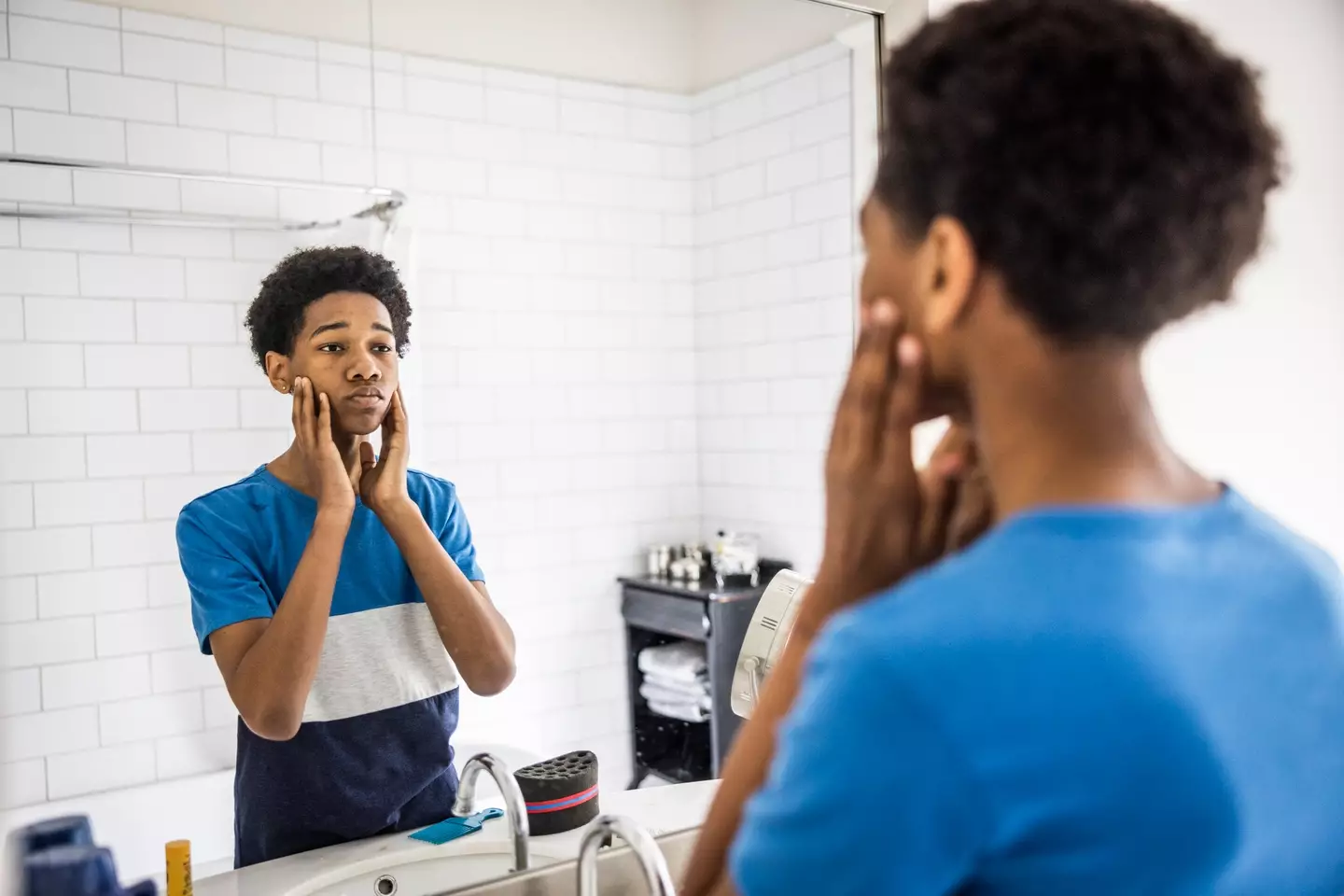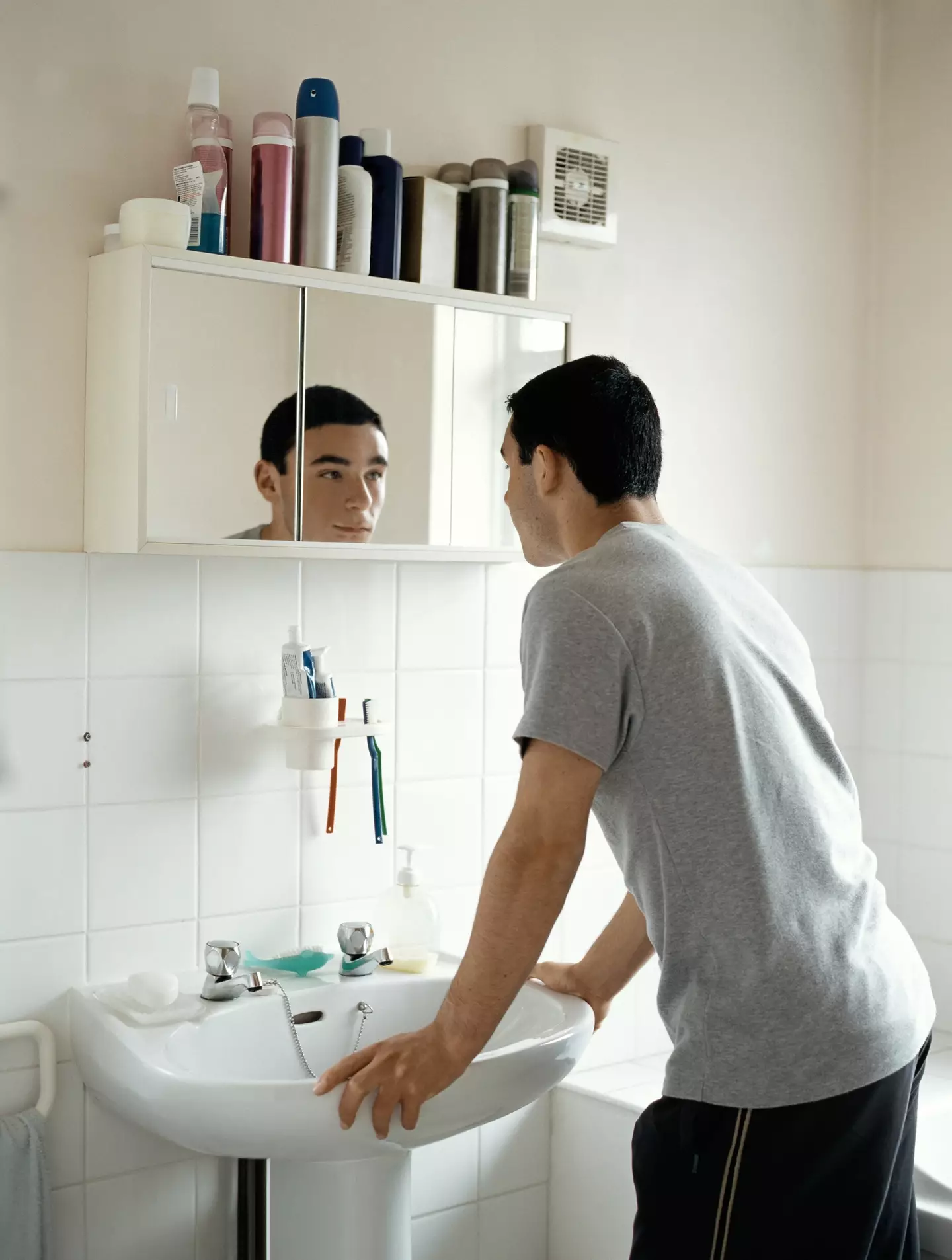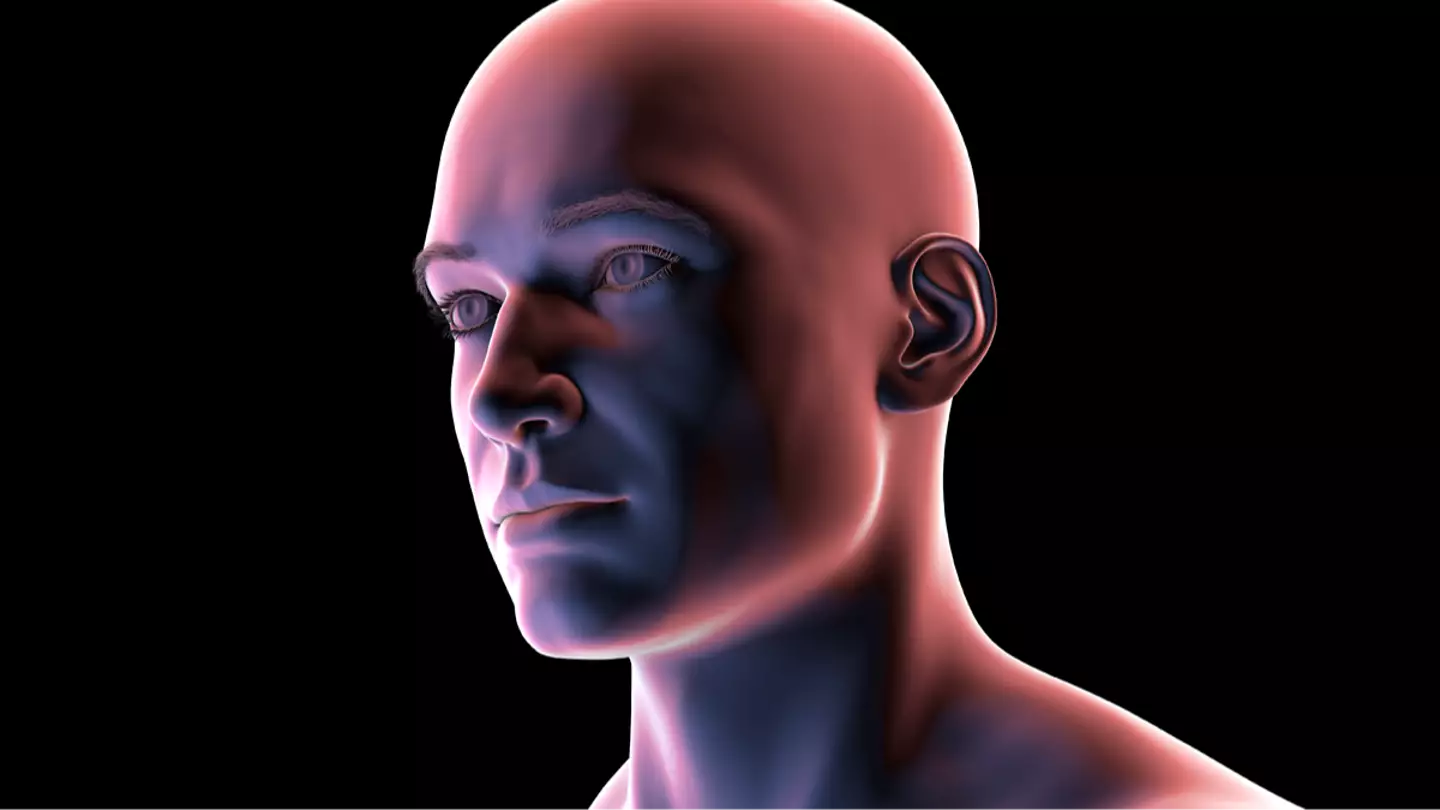The intense phenomenon of ‘looksmaxxing’ is quietly gaining traction online, and experts warn it’s having a profound impact on the mental well-being of young men.
Everyone has those days when they glance in the mirror and wish for a change – whether it be a bad hair day, fatigue from lack of sleep, or a sudden acne breakout.
However, for individuals immersed in the looksmaxxing community, this self-doubt can escalate into something far more perilous.
Looksmaxxing is promoted as a method to ‘enhance your appearance to the maximum extent’ – but a recent study indicates it’s causing significant harm beneath the surface.
“It is really caustic to the self-esteem of men and boys,” says Michael Halpin, a sociology professor at Dalhousie University who conducted the research, in conversation with CBC.
On widely-used message boards, individuals share photos and invite strangers to critique every aspect of their appearance – from the sharpness of their jawline to the ratios of their lips and chin, and the feedback is harsh.
Derogatory remarks from trolls projecting their insecurities onto others range from ‘your body is disgusting’, to ‘no one will ever love you’, and ‘you’ll never get a job unless you fix yourself’.

Halpin’s research team analyzed over 8,000 comments from the largest looksmaxxing forum, which has around 60,000 participants and garners millions of visits every month.
Most participants are heterosexual males between the ages of 14 and their mid-20s, and they evaluate each other using a rigid hierarchy – with ‘chads’ at the top, ‘normies’ in the middle, and ‘subhuman’ at the bottom.
The advice varies from mild ‘softmaxxing’ suggestions like skincare, dieting, and grooming, to extreme and hazardous practices.
Surgical procedures on the jaw, nose, or eyelids are frequently recommended, as well as the use of steroids, botox, and even leg-lengthening surgeries.
A particularly alarming trend is ‘bonesmashing’ – intentionally striking facial bones with the hope they’ll reform in an ‘improved’ shape.
Incredibly, some insecure teens actually attempt to follow the malicious guidance dispensed by online bullies.
Then there’s the more widely known practice of ‘mewing’ – pressing the tongue against the roof of the mouth to purportedly create a more defined jawline – which has found popularity on platforms like TikTok and Instagram.
Some teenagers now casually incorporate this jargon in school without fully grasping its meaning.

Halpin notes that the relentless criticism encourages boys to scrutinize themselves in unhealthy ways, and although the ‘solutions’ can be dangerous, his team frequently found comments from trolls urging others to harm themselves.
“We saw numerous men being told that they’re beyond help, beyond saving,” Halpin revealed.
“It’s like, your appearance is set, nothing you can do will help you and you should complete suicide because looks are all that matter and you’re going to have a terrible life because you’re an ugly man.”
The looksmaxxing community also serves as an entry point to more sinister areas of the internet, linking to misogynistic and extremist spaces like incel forums and male separatist groups.
Morris Green, who oversees the GuysWork program in schools in Nova Scotia, Canada, mentioned to the publication that these beauty standards are exerting unprecedented pressure on young men.
“What really makes a person great has very little to do with the size of their biceps or their six-pack,” he stated. “It’s about their integrity, their loyalty, their ability to care.”
Although looksmaxxing may market itself as a form of self-improvement, it’s merely leaving a trail of anxiety, obsession, and harm in its wake.

